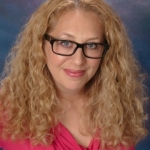It’s time. You feel ready for this. You feel secure in your career, your financial situation, your relationships, and your place in life, and now you are ready to get pregnant and start your family. If you are a woman over the age of 35 and feel like you are in the prime of your life, you may be surprised to find that the maternity medical establishment may not view you in the same light. To help you be better prepared for “what to expect,” here are some of the highs and lows of approaching pregnancy over age 35. The Lows:
- You will be labeled an “elderly primigravida” and “advanced maternal age.”
- You have a higher risk of having a child with a genetic disorder, such as Down syndrome.
- You are at higher risk of developing high blood pressure, pre-eclampsia, HELLP syndrome, and gestational diabetes.
- Your have a higher risk of experiencing a pregnancy loss, miscarriage, or stillbirth.
- You are more likely to give birth by cesarean section.
These increased risk factors can overwhelm a person with fear, but there is hope! The Highs:
- You are a unique individual, not a statistic.
Just because in aggregate these problems occur more frequently in women over 35 does not mean they will definitely happen to you. Once you break down the numbers and compare them with your personal stats, you might find they are not so scary after all.
- Sticks and stones (and osteoporosis) may break your bones, but names will never hurt you.
These outdated terms that doctors use say more about the patriarchal roots of the profession of obstetrics than they do about your health or your ability to bear children. Hopefully you are at an age where you feel comfortable speaking your mind, and you can tell your doctor not to use those terms when speaking to you because they are rude and should be changed to better reflect the population they now serve. Better yet, make sure the care provider you choose views you as an individual, not a label, and bases their care decisions on your actual health needs rather than on risk aversion. You have the ability to influence a lot of your risk factors. You can reduce certain risk factors through diet and exercise, and making sure you are in good health before you become pregnant. Carefully select your location to give birth, since hospitals vary widely in their rates of intervention. For example, you are more likely to have a cesarean if you give birth at a hospital with a higher operative birth rate regardless of your personal risk. Choose care providers wisely and find ones who individualize care to your needs and treat you respectfully. Working with midwives and exploring birth centers and home birth might offer options for you that could provide care which is more tailored to your health needs. The facility where you give birth and your care provider are independent risk factors for birth outcomes. Find your desired place of birth first based on rates of surgical birth and interventions as well as positive outcomes, then find a care provider who does deliveries in that facility.
- You can use your life experience to your advantage.
Your experience, confidence, maturity and resources can help you access individualized care in a way that younger mothers-to-be may be challenged to do. If you are in the ranks of mid-life mothers who have advanced degrees and higher socio-economic standing, you are in a position of even greater power to influence your outcomes in a positive way. Understanding the statistics, the risk-averse nature of the American maternity care system, and knowing how to advocate for yourself in the healthcare setting are tools and skills that are within your reach. Midlife pregnancy does call for greater vigilance and self-care than the typical pregnancy at a younger age, but it also comes with rewards from a greater appreciation of the miraculous nature of the experience. By focusing on the highs while maintaining a realistic understanding of the lows, pregnancy after 35 can be a self-empowering, transformational, wonderful experience.  Michal Klau-Stevens is The Birth Lady. She is a maternity consultant, pregnancy coach, consumer expert on maternity care issues, Past President of BirthNetwork National, Lamaze Certified Childbirth Educator, and mother. Her website is TheBirthLady.INFO. Find her on Facebook at The Birth Lady page!
Michal Klau-Stevens is The Birth Lady. She is a maternity consultant, pregnancy coach, consumer expert on maternity care issues, Past President of BirthNetwork National, Lamaze Certified Childbirth Educator, and mother. Her website is TheBirthLady.INFO. Find her on Facebook at The Birth Lady page!
